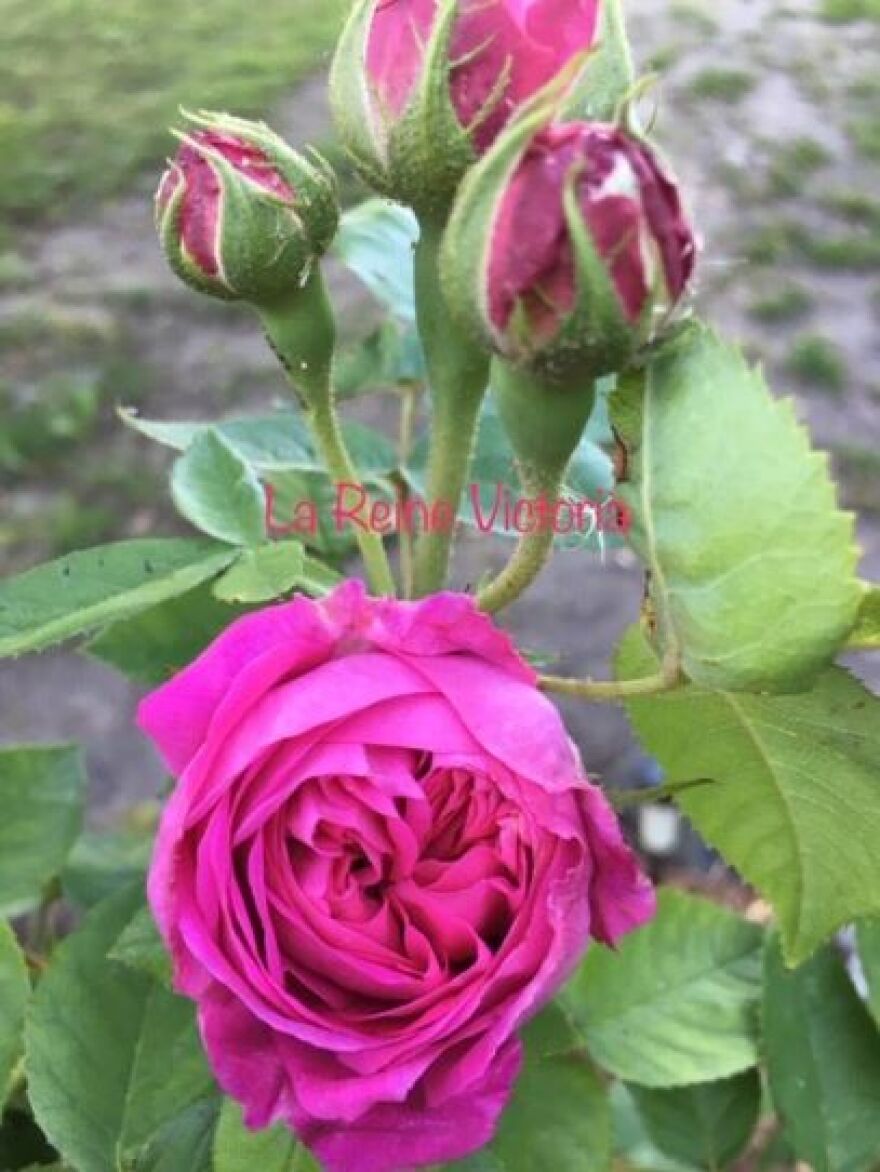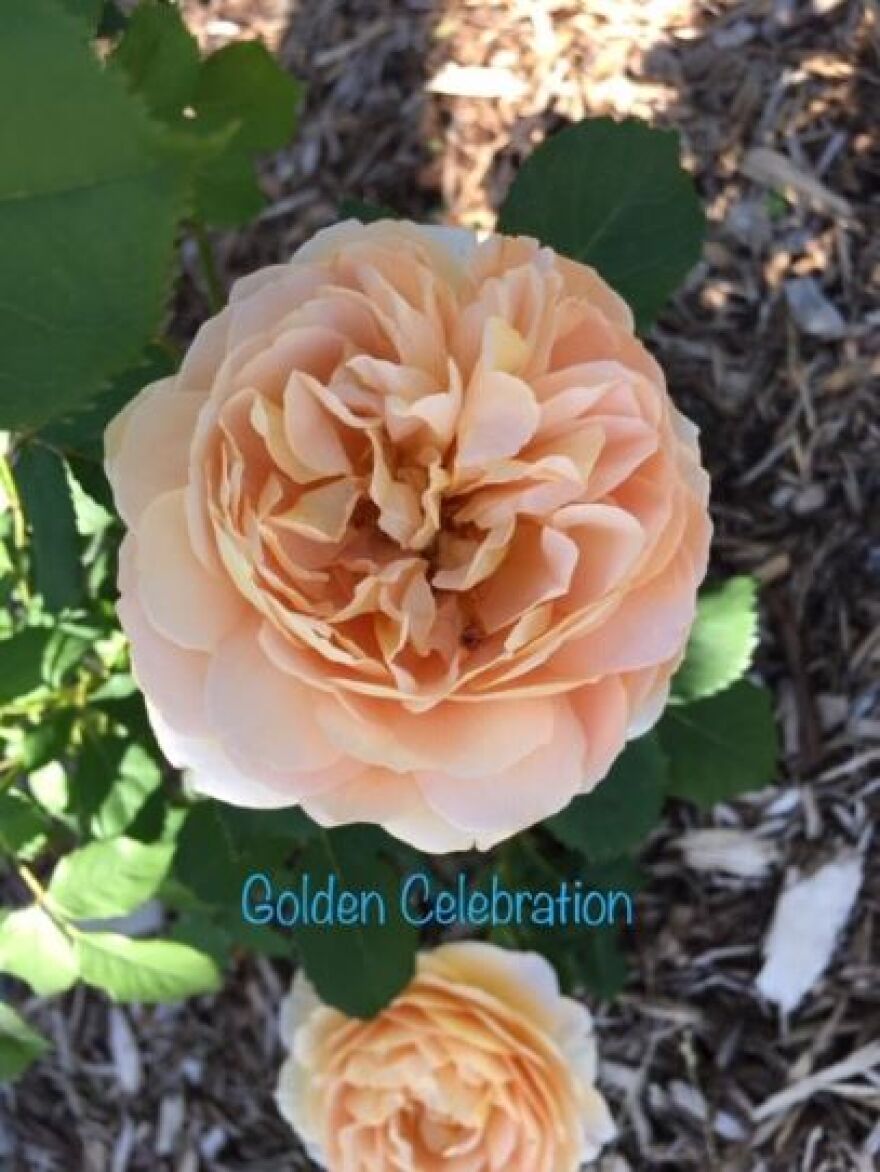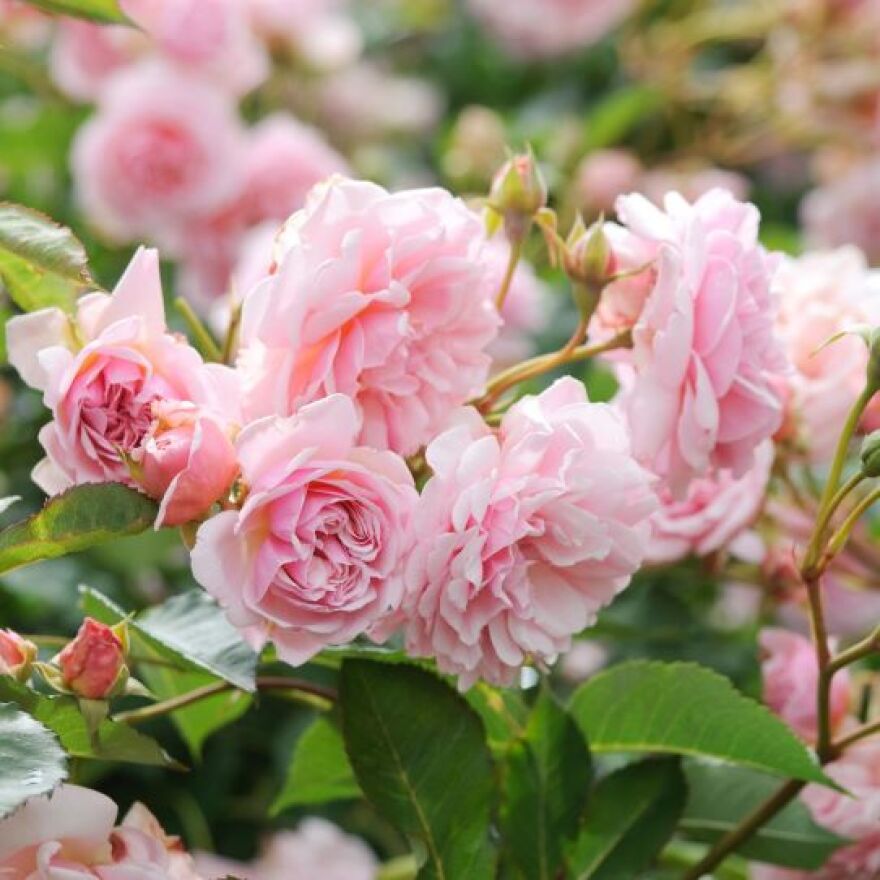JW: Roses are red. A rose is a rose. Everything's coming up roses. I think we can go on and on--talking or singing about these gorgeous flowers. But what if we want to grow them? I'm Judy Wagley. This is “From the Ground up!” Mindy Rosenberger owns Hummingbird Roses Nursery, and she says that early April is an important time for folks who have roses in their garden. Welcome, Mindy, and thanks for visiting today.

MR: Thank you so much. I'm very delighted to be here!
JW: Why is April important for folks who grow roses?
MR: April is really when you are going to get your roses ready to wake up for the season and spring pruning for your modern roses is very important. There's different classes of roses. There's your modern roses that you prune in the spring-- typically around the time the forsythia blooms you know the big yellow bushes, the forsythia. That's a good indicator that it's time to prune your modern roses. When those are in bloom, and typically it's around early to mid-April depending on how harsh the winter was. But this year it could be a little earlier just because we've had a really mild winter. And then there's your old garden roses that bloom on old wood. So if you prune them down in the spring, you're not going to have any flowers this season because they bloom on old wood. You want to prune them in, like, September, October, at the very latest, the previous season. And then there's your climbers and ramblers. Roses that bloom typically on new wood, but you don't want to prune them down to the ground or close like you would some of your more modern roses because you want them to climb, and they take a while for them to regenerate those large canes every year. So you just really kind of clean those up instead of prune them.
JW: It sounds like the first thing you need to know is what kind of roses you have.

MR: Absolutely, yes. There are so many hundreds of different varieties of roses. Those that repeat bloom typically in our climate typically have three to four flushes throughout the year is more a modern rose, and those could be your hybrid teas, your Floribundas your shrub roses and those can all be pruned in the springtime. The old garden roses--we can prune in the fall so that we don't get rid of the blooms that are so absolutely beautiful.
JW: Since it's springtime now, let's talk about pruning those modern roses.
MR: Yes. Use a sharp pair of pruners--clean. I use those Clorox wipes—they work really wonderful. Just carry them around with you when you're out in the garden. It shouldn't take terribly long to prune your roses, but it is important to clean out any of the dead wood that's in them, and to shape the plant so that you can give it a nice start. Pruning actually is a sign for the plant to start growing again. It's a signal to them: “Oh I need to start growing!” So that's why it's done in the early spring. You don't want to prune it before it goes to bed in the winter because that says. “I'm going to start growing!” and that's the last thing you want it to do going into winter.
JW: Is there a special technique for pruning?
MR: There is. You want to prune with--like I said, a sharp pair of pruners, and you want to find an outward facing bud eye on the cane, and you usually prune it just above the outward facing bud eye at an angle.
JW: And you mentioned shaping, is there a shape we're going for?
MR: You don't want canes to cross. That's one important thing. You want them all to be like an urn shape facing out. So anything that's in the middle of the plant, if the canes are crossing, you want to take those out so that when it starts to leaf out, it's not trapped with all of the air flow, and it air can get through it, and that helps prevent diseases that roses can be notorious for at times.
JW: What about any sort of top dressing or anything like that for the roses?
MR: Early spring is also a perfect time for a good layer of compost. Just on the top at the base of the plant. I do that every spring, and when it rains then it will leach down into the soil gradually. I'll also usually top dress the whole bed with just-- I'll broadcast a slow-release fertilizer, but I think compost on top of each plant in the early spring is a good way to get them going.

JW: Mindy, I know that you love roses. Yes, your elevator pitch for why folks should grow roses?
MR: Ohh. Gosh, they are not as hard as some people think they are. They're actually considered the “queen of flowers.” They are so beautiful, especially if you grow fragrant ones. And there are so many out there that are so fragrant. My delight is walking around my gardens in the morning with my cup of coffee and just bending down-- and I call them “Stinky.” Just smelling them gives me such a feeling of joy!
JW: taking time to smell the roses!
MR: Literally. Yes!
JW: Mindy Rosenberger from Hummingbird Rosses Nursery. Thanks for joining me today for “From the Ground Up!” and all of this great information.
MR: It's been a pleasure, thank you.



